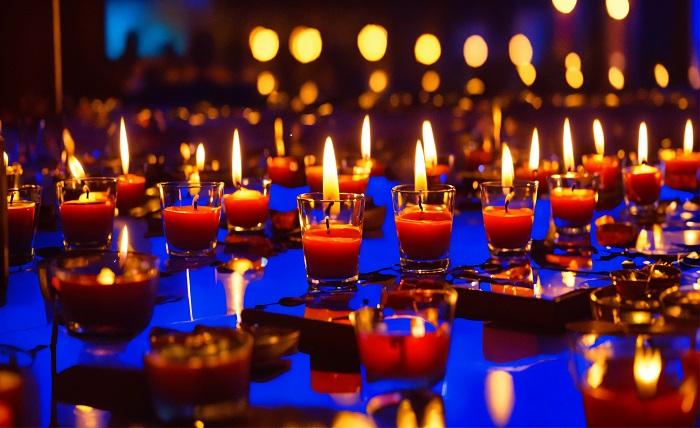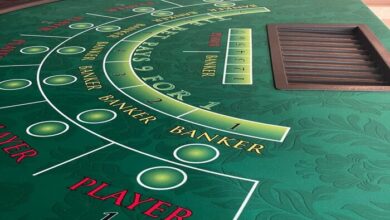Diwali Kab Hai 2025: Date, History, Significance, and Celebrations

When people search for diwali kab hai, they are not only looking for the festival date but also for its meaning, history, and importance. Diwali, also known as Deepavali, is celebrated across India and worldwide by millions who eagerly ask the same question every year: diwali kab hai. The festival marks the victory of light over darkness, good over evil, and knowledge over ignorance. To truly understand the depth of diwali kab hai, one must explore its traditions, rituals, and cultural significance that go far beyond the date itself.
History Behind Diwali Kab Hai
The history of diwali kab hai is rooted in ancient Indian traditions, mythology, and scriptures. According to the Ramayana, people of Ayodhya lit lamps and celebrated Lord Rama’s return from exile after defeating Ravana, giving rise to the tradition that answers the question: diwali kab hai. In other beliefs, Diwali is connected to Goddess Lakshmi, the goddess of wealth and prosperity, who is worshipped on this day. For Jains, diwali kab hai also marks Lord Mahavira’s attainment of nirvana, while Sikhs commemorate Guru Hargobind Ji’s release from captivity. This diversity makes diwali kab hai historically rich and spiritually significant.
Diwali Kab Hai 2025: Exact Date and Tithi
Every year, devotees eagerly search diwali kab hai to prepare for the festivities in advance. In 2025, Diwali will be celebrated on 21st October 2025, which falls on a Tuesday. The exact timing of diwali kab hai is determined according to the Hindu lunar calendar, specifically on the Amavasya (new moon) of Kartik month. Astrologers and priests carefully calculate the tithi (auspicious time) to ensure prayers and rituals are performed correctly. Knowing diwali kab hai helps families plan shopping, cleaning, and preparations for this grand festival.
Why People Ask Diwali Kab Hai Every Year
The reason people keep asking diwali kab hai is because the Hindu calendar is lunar-based, and the date shifts every year. Unlike fixed festivals such as Independence Day or Christmas, diwali kab hai depends on the Amavasya in Kartik month, which changes annually. This creates curiosity and excitement, making diwali kab hai one of the most searched queries as the festive season approaches. Families, shopkeepers, and communities eagerly want to know diwali kab hai so they can organize pujas, markets, and gatherings in advance.
Rituals and Traditions Linked to Diwali Kab Hai
To fully understand diwali kab hai, one must also know about the traditions associated with it. On this day, people clean and decorate their homes with diyas, rangoli, and flowers to welcome Goddess Lakshmi. The ritual of Lakshmi Puja is the heart of the day when people worship wealth and prosperity. Fireworks, sweets distribution, and exchanging gifts also define the celebration of diwali kab hai. For farmers, it marks the end of harvest, while for traders, diwali kab hai is considered an auspicious time to start new financial accounts, known as “Chopda Pujan.” Every ritual reflects the cultural significance of diwali kab hai.
Diwali Kab Hai and Its Cultural Importance
The cultural impact of diwali kab hai goes beyond India, as it is celebrated by Indian communities worldwide. In countries like Nepal, Sri Lanka, Fiji, Malaysia, and Mauritius, the question of diwali kab hai resonates deeply, uniting families in traditions of light and joy. The festival also carries social importance, as it strengthens bonds between friends, relatives, and neighbors. The celebration of diwali kab hai creates unity among different communities regardless of religion or region, making it one of the most vibrant cultural festivals globally.
Preparations Leading Up to Diwali Kab Hai
The excitement around diwali kab hai begins weeks before the actual date. Families start deep-cleaning their houses to invite positive energy and Goddess Lakshmi. Shopping markets are filled with clothes, decorations, sweets, and gifts, all because everyone wants to be ready for diwali kab hai. Businessmen open new accounts, students buy new books, and homemakers prepare traditional sweets and snacks. The enthusiasm to know diwali kab hai stems from this anticipation of joy, togetherness, and spiritual blessings that come with the festival.
Modern Celebrations and Environmental Awareness of Diwali Kab Hai
In today’s world, the celebration of diwali kab hai has taken a modern turn, with people opting for eco-friendly celebrations. Many families are now conscious of pollution caused by firecrackers and instead light diyas, use LED decorations, and plant trees to mark diwali kab hai. Social media campaigns and online greetings also play a huge role in spreading festive cheer. While traditions remain strong, the way people celebrate diwali kab hai is evolving with awareness and sustainability in mind. This ensures that the essence of diwali kab hai continues while protecting the environment.
Conclusion
The question diwali kab hai is more than just about the date—it is about history, culture, rituals, and joy. In 2025, Diwali will be celebrated on 21st October, but the spirit of diwali kab hai lives far beyond one day. It is a time for togetherness, prosperity, and spiritual awakening. By asking diwali kab hai, we are also reminding ourselves of the importance of light, positivity, and tradition in our lives. The celebration unites people across the globe, making diwali kab hai one of the most cherished festivals of humanity.
FAQs
1. Diwali kab hai 2025?
Diwali kab hai 2025 falls on 21st October, Tuesday, according to the Hindu lunar calendar.
2. Why does Diwali kab hai change every year?
Diwali kab hai changes yearly because the Hindu calendar follows lunar cycles, and the date depends on Kartik Amavasya.
3. What rituals are performed on Diwali kab hai?
On Diwali kab hai, rituals like Lakshmi Puja, lighting diyas, making rangoli, exchanging gifts, and fireworks are performed.
4. Is Diwali kab hai celebrated only in India?
No, Diwali kab hai is celebrated worldwide by Indian communities in Nepal, Fiji, Malaysia, Mauritius, and more.
5. Why is Diwali kab hai important for traders?
For traders, Diwali kab hai marks the beginning of a new financial year, and they perform Chopda Pujan for prosperity.




